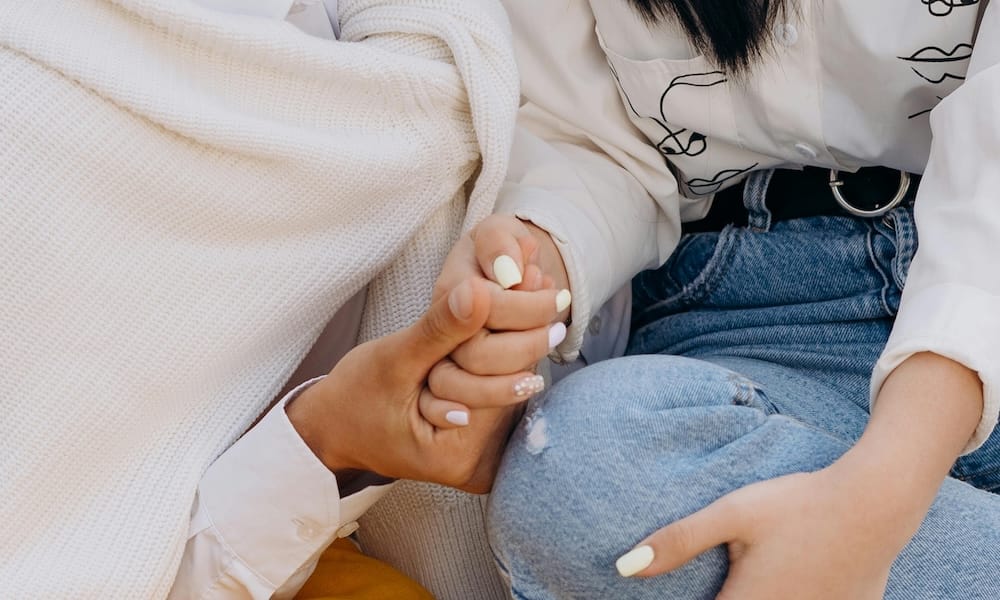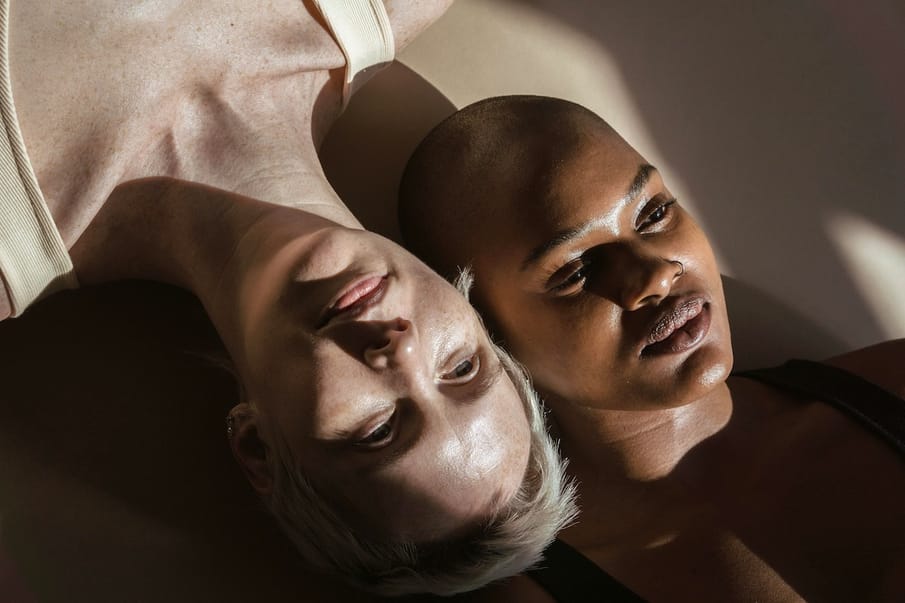What’s the impact of losing a feature that is so tied up in our identity, and how can we move on, mentally and emotionally, from the surprisingly common experience of losing our hair?
“Hair is everything. We wish it wasn’t, so we could actually think about something else occasionally, but it is.” It’s a line from the multi-award-winning TV show Fleabag – acclaimed for its astute, moving, and understated power – and the oft-quoted hair speech is one that’s right on the money.
Our hair plays a huge role in our identity. Tied up in gender expression, personal style, age, and self-image, rightly or wrongly, our hair is often used to communicate something about us to others. So, where are we left when we lose it?
Hair loss can happen for a range of reasons, including male pattern baldness, illnesses such as alopecia, side-effects of medication, infections, diseases, diet, age, hormonal changes, and stress. According to the American Hair Loss Association, by the age of 50, around 85% of all men will experience some form of male pattern baldness and, as shared in a Harvard Health Publishing article, about one-third of women will experience hair loss at some point in their lives. It’s fair to say that this is a very common issue, and yet the impact of it can still be immense, as many have found out first-hand.
“I was around 21 years old when a friend at work pointed out my crown was starting thin, while cutting my hair,” says Jake Jones. “It wasn’t too bad at the time, and I thought it would be a fairly gradual process over the next 10–15 years but, boy, was I wrong!”
Jake experimented with products designed to prevent further thinning but, two and a half years later, he was in the shower when he noticed clumps of his hair were blocking the drain. “A moment of sheer panic and doom came over me,” he recalls. “I jumped out and looked in the mirror to find my thin crown was now no crown, and was pretty much a bald spot.
“I thought about transplants, but didn’t want to go down that route. I decided to just keep it tied up, or I wouldn’t leave the house without a cap or beanie. If for any reason I had to take my cap off, I would always make the first joke about the bald spot as a slight defence mechanism. I couldn’t enjoy being in public without my sacred cap. If I went to a restaurant, I would be more bothered about who was in the eye line of my crown than what was on my plate. Nights out were a nightmare, as one hug from a friend could move the perfectly positioned placement of hair that was glued in place, and expose the dreaded patch. It had a huge knock-on effect on my mental health and confidence, and I felt trapped in a cap that could never come off in public.”

That sense of self-consciousness and shame was something felt by Nosheen Choudhry, too.
“My hair loss started after sudden, unhealthy, fast weight loss,” she says. “I remember my hair fall increasing every month, and it seemed to be getting worse. By six months, I had lost 50% of my hair. At first, I felt ashamed and kept it very secretive. I refused to socialise with friends, and avoided gatherings as I felt ashamed of my image. I spent most of my time in my room alone, not wanting to carry out daily tasks in life or wanting to speak to anyone.”
For Dawn Hosmer, both these reactions are familiar. Dawn now works as a counsellor, but originally trained as a hair and make-up artist in the 80s. “My mother died of lung cancer in 2004, and had refused chemotherapy – the main reason why was because she didn’t want to lose her hair,” Dawn says. “A few years later, I saw a job advertised as a hair loss stylist. I felt drawn to this because of my mother, and I applied, believing that I could make a difference.”
Eventually, Dawn began working with a wig maker who held contracts with the NHS, and needed someone to run the wig clinics in hospitals. “I was the first person most patients saw after their diagnosis, and many were in distress and shock, and very emotional. Some were angry, coming from a place of fear and sadness, but the tension would lessen once they expressed their emotions, and knew I was there to help and support them through their hair loss journey – explaining what and how it would happen, and their options with wigs and hair pieces.”
Many years later, Dawn was made redundant, and so retrained as a counsellor. But the experience of hair loss is still something that she works closely with. “In my opinion, hair loss and mental health are linked so closely, because it is so out of the client’s control, and yet it’s happening to them,” Dawn explains. “They can feel less attractive and scared – in men, less virile – they lose self-confidence and esteem, and it affects their self-worth. All this can show up as sadness, anger, and feelings of being ashamed or embarrassed, leading to anxiety and depression. Then this can cause isolation and loneliness. Our identity is ours, and is what helps us celebrate our uniqueness – an element of that is our hair and how we look.”
It took Jake a further two years of living with many of these feelings before something eventually changed for him.
“I decided to bite the bullet and shave it off, and I can honestly say it was one of the most liberating things I could have done,” he says. “No more bald spots, no more worrying in case people see my empty crown, no more stress about keeping the hair in the exact place all day. I was free to go outside without a cap or a beanie. It wasn’t until I didn’t have to worry that I realised how much I worried before.”
And for Nosheen, liberation came from turning to family for support, and working on a way to reach others. “I reached out to my family members, and accepted any help they were willing to offer. My mum was a huge support to me throughout my hair loss journey. It was her who suggested I try her family hair oil remedy.”

Nosheen went on to develop that recipe into Nosheen Hair Oil, but she also created a 24-hour chat available for those who wish to speak about their hair loss in confidence, and discover a safe space to talk about what’s worrying them.
But for those still at the beginning of their journey, Dawn has this advice: “There is help available. Speak to the GP, get a referral to a dermatologist or trichologist, and possibly look into an antidepressant if you are struggling with low mood or anxiety. Get in touch with counsellors, and speak to a few until you find a therapist who you feel comfortable with and who has an understanding of hair loss. Open up about your feelings before they become overwhelming.
“Make appointments at wig clinics to try the available pieces; some are excellent and can help with confidence. If that isn’t for you, look at the options out there, but most of all, don’t believe you are alone. There is a vast community for hair loss; communication is vital. Remember, seeking help is a sign of strength and self-care. You have the power to take control of your journey.”


Comments